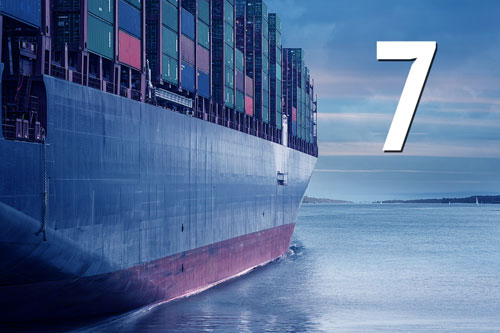 Here are a few quick, cost-saving tips for importing and exporting from the international air, international ocean, and project cargo freight forwarding experts at Logistics Plus:
Here are a few quick, cost-saving tips for importing and exporting from the international air, international ocean, and project cargo freight forwarding experts at Logistics Plus:
Importing Tips:
- Take the time to confirm your HTS codes before importing. U.S. Customs’ system of classification can be very complicated, and the HTS codes advised by suppliers are not always accurate or match the U.S. classification system 100%. A full cost for imported goods can only be known with the correct HTS codes.
- Keep potential exams in mind when thinking about the transit time, for ocean shipments particularly. An exam can take a week or more, and could be caused by any importer on an LCL consolidation, or a container could be simply selected at random. If goods are time-sensitive, air shipping part or all of the order could save money in the long run.
- Be sure your broker or import forwarder is made aware of all ocean imports well in advance of departure from overseas. An Importer Security Filing (ISF) must be filed timely! Liquidated damages for ISF start at $5,000 for failure to file an ISF, $5,000 for late ISF, $5,000 for inaccurate ISF, $5,000 for an incomplete ISF, and $5,000 for failure to withdraw an ISF. The maximum liquidated damages per ISF filing is $10,000.
Exporting Tips:
- Know your Incoterms®. Incoterms can be a frustrating and confusing to understand; however many exporters do not fully understand the terms to which they are agreeing and, therefore, end up paying more or running into unexpected fees. As an exporter, you need to understand the costs, responsibilities, rights, and obligations that accompany the use of a specific Incoterm. Every quotation or sales order must include a term of sale. If you fail to clearly identify the specific Incoterm to your customer, it can lead to an overestimation or underestimation of the costs associated with the goods you are selling (and a lost sale).
- Research the area to which you are selling. Selling to a new area requires you to keep an open mind. Knowing the market you will be putting your product into can alleviate a lot of the stress with exporting. What currency do they use? What is the local tax or VAT (value-added tax) system? What is the business culture, and/or local culture? When are their holidays or weekends observed?
- Do your paperwork. Know that each country has its own set of importing regulations that require different licenses and customs paperwork. Some countries will require certain stamping, legalizations, or original documents, while others simply accept copies. These vary from country to country, region to region, and with specific commodities.
Most Important Tip:
- Work with an experienced and reputable freight forwarder. An international freight forwarder acts as an agent on your behalf and assists in moving your shipment from its U.S. origin to its foreign destination. Capable freight forwarders are familiar with the import rules and regulations of foreign countries, U.S. import and export regulations, methods of shipping, and required documentation. They can assist you in preparing pricing quotations by providing freight costs, port charges, documentation fees, insurance costs, and handling fees. They can also recommend packaging methods and transportation modes that will best protect your products during transport and ensure they arrive when and where you need them.
Ready to take us up on tip #7? If yes, then click the button below to get started.

